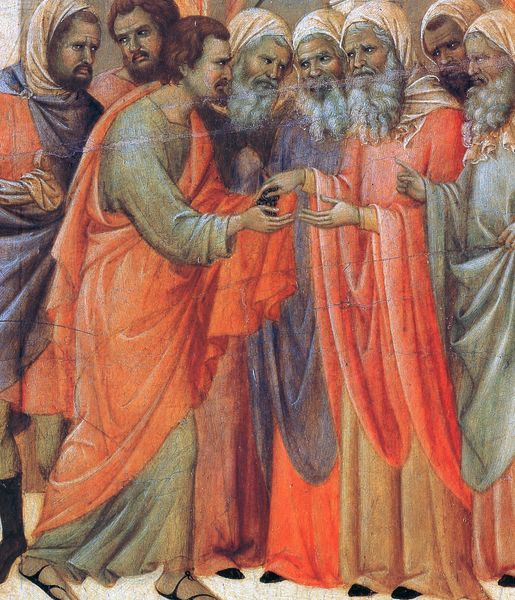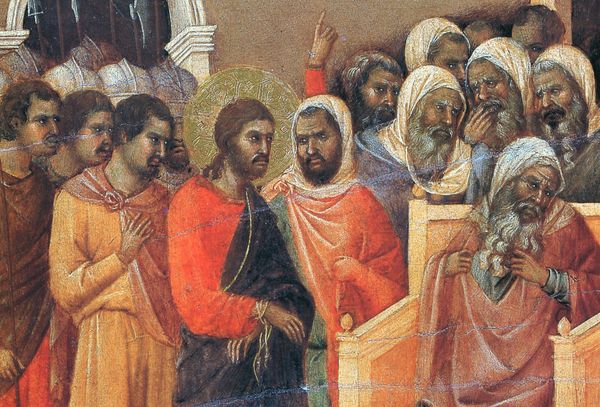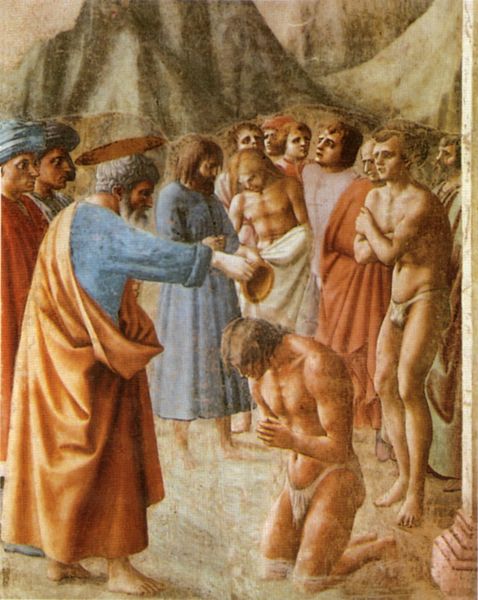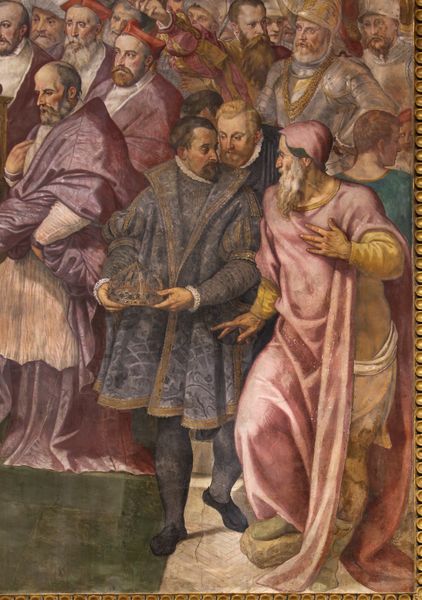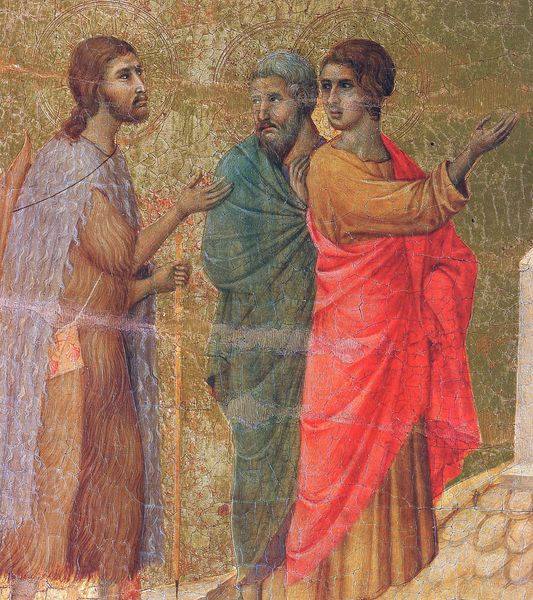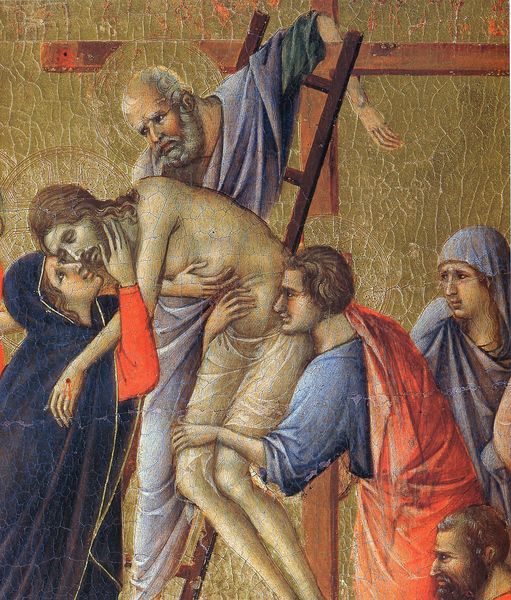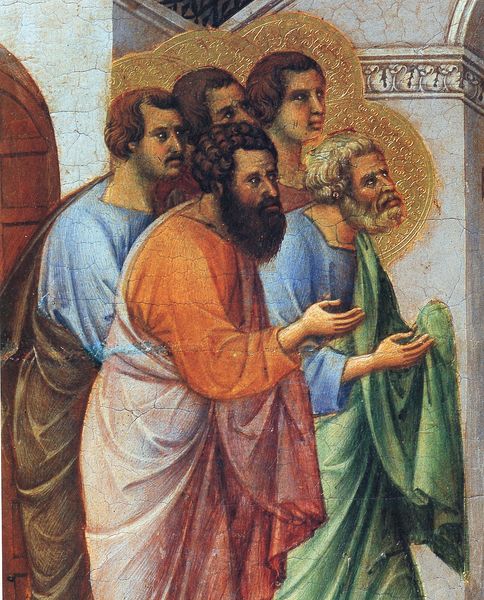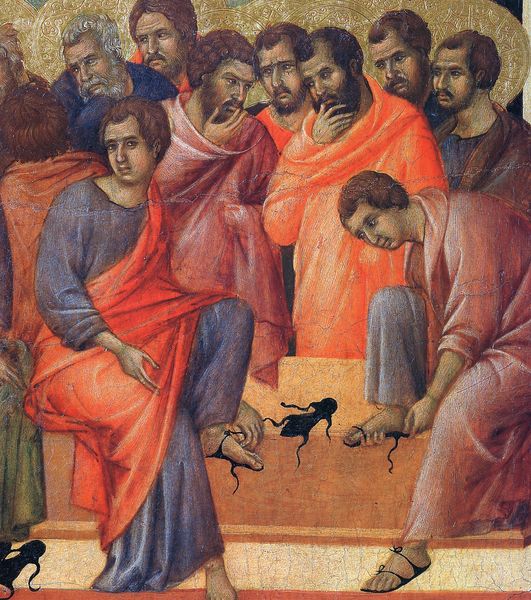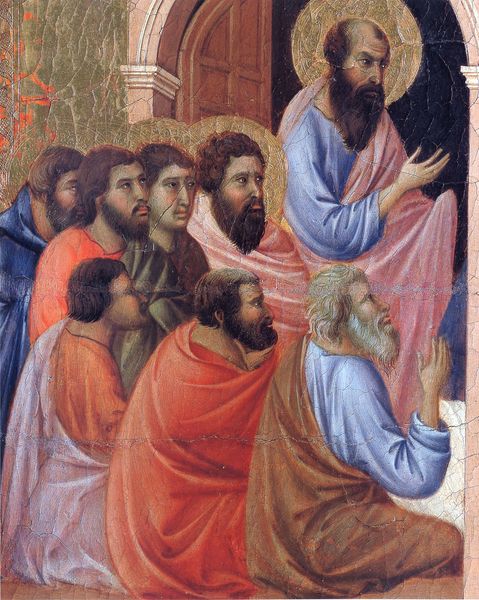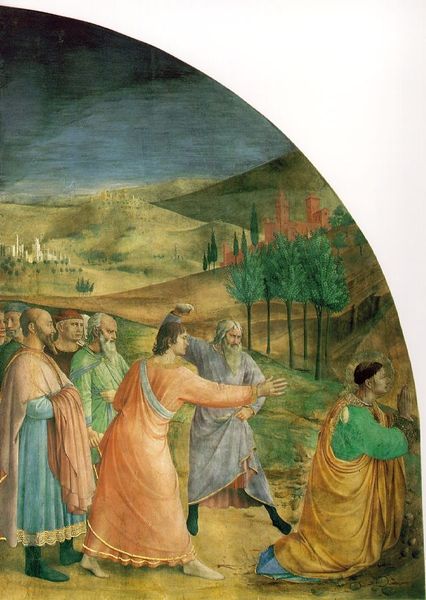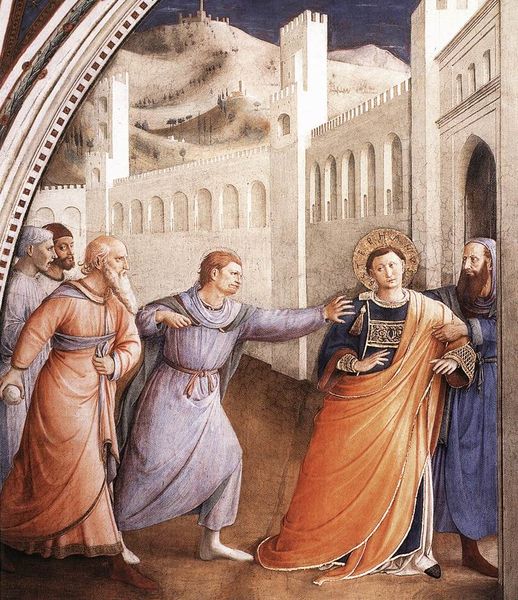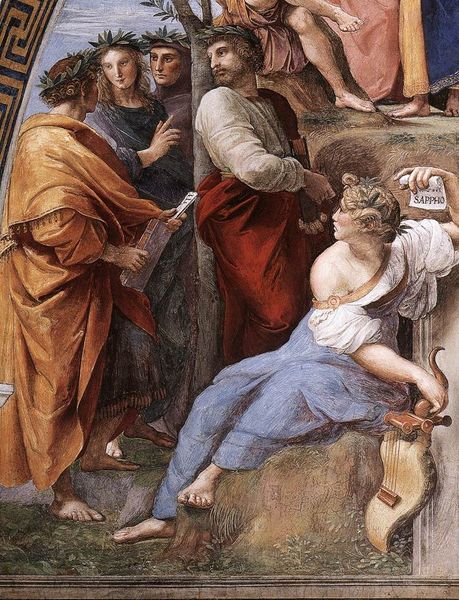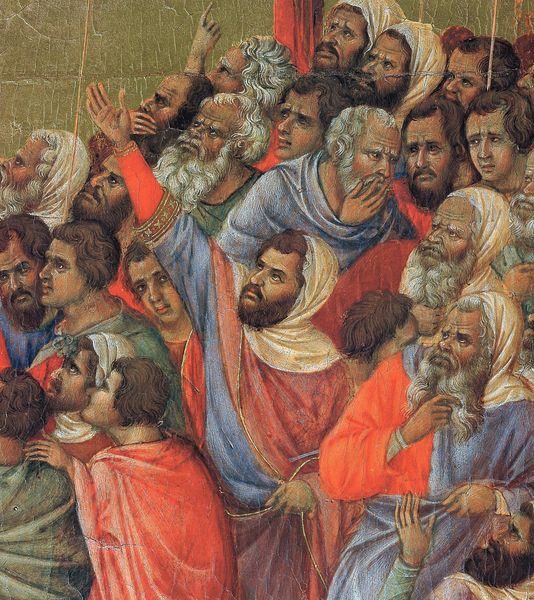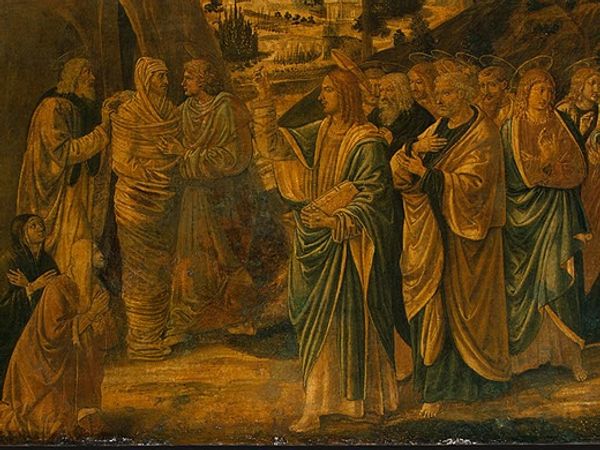
painting, oil-paint, textile
#
portrait
#
medieval
#
painting
#
oil-paint
#
sienese-school
#
textile
#
figuration
#
oil painting
#
soldier
#
christianity
#
history-painting
#
italian-renaissance
#
christ
Copyright: Public domain
Editor: We’re looking at Duccio's "Arrest of Christ" from 1311. It’s oil on textile and I’m struck by the almost theatrical arrangement of figures and how the bright colours draw the eye. What stands out to you most in terms of its composition? Curator: I am most intrigued by Duccio's use of colour to direct the viewer's gaze, in tandem with compositional symmetry. Consider the placement and hue of figures – do you see how they create distinct, almost segmented narratives within the same panel? How do those segments enhance the painting's structure? Editor: I see what you mean. It’s like each little pocket of action is framed by color, especially the blues and reds. Are you suggesting that these distinct scenes within a scene affect the overall balance? Curator: Precisely. Furthermore, observe the manipulation of depth. The figures seem somewhat flattened against the gold background, denying a conventional Renaissance perspective. What effect does that have? Editor: I guess it flattens the narrative, making everything feel equally important – all pieces of the same event happening at once, and denying realistic depth focuses attention on the forms themselves. Curator: Good. The denial of traditional depth pushes us toward a more symbolic interpretation of space, emphasizing the emotional and theological drama. Considering this flattened picture plane, the bright, localized colours, how might this alter our perception of the scene depicted? Editor: Well, I'd never thought about the flattened depth, but you're right. It all adds up to something pretty powerful and unique to the era. Curator: Indeed. It is by interrogating elements such as colour and spatial depth, that we begin to appreciate how Duccio transcends conventional narrative to make an emphatic pictorial and conceptual statement.
Comments
No comments
Be the first to comment and join the conversation on the ultimate creative platform.
